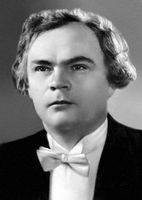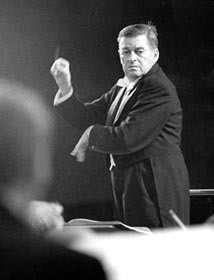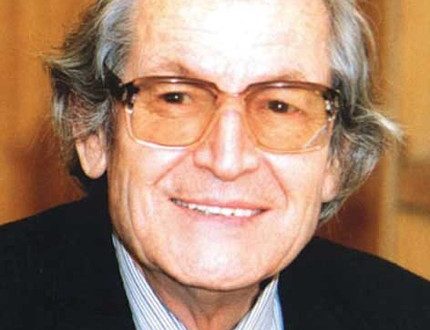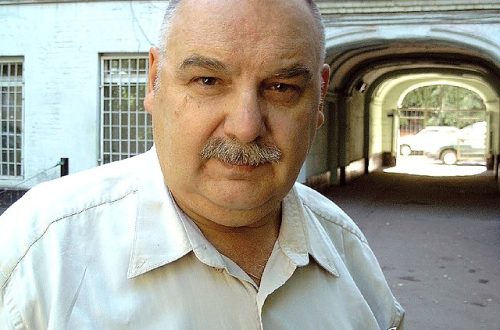
Konstantin Konstantinovich Ivanov (Ivanov, Konstantin) |
Ivanov, Konstantin

People’s Artist of the USSR (1958). In the autumn of 1936, the State Symphony Orchestra of the USSR was organized. Soon Konstantin Ivanov, a graduate of the Moscow Conservatory, became an assistant to its chief conductor A. Gauk.
He went through a difficult path before becoming the conductor of the country’s largest symphony ensemble. He was born and lived his childhood in the small town of Efremov near Tula. In 1920, after the death of his father, a thirteen-year-old boy was sheltered by the Belevsky Rifle Regiment, in whose orchestra he began to learn to play the horn, trumpet, and clarinet. Then the music lessons were continued in Tbilisi, where the young man served in the Red Army.
The final choice of the path of life coincided with the transfer of Ivanov to Moscow. At the Scriabin Music College, he studies under the guidance of A.V. Aleksandrov (composition) and S. Vasilenko (instrumentation). Soon he was sent to military bandmaster courses at the Moscow Conservatory, and later transferred to the conducting department, in the class of Leo Ginzburg.
Having become an assistant conductor in the State Symphony Orchestra of the USSR, Ivanov in early January 1938 performed the first independent concert of the works of Beethoven and Wagner in the Great Hall of the Conservatory. In the same year, the young artist became a laureate of the First All-Union Conducting Competition (XNUMXrd prize). After the competition, Ivanov worked first at the Musical Theater named after K. S. Stanislavsky and V. I. Nemirovich-Danchenko, and then in the orchestra of the Central Radio.
Ivanov’s performing activity has been most widely developed since the forties. For a long time he was the chief conductor of the State Symphony Orchestra of the USSR (1946-1965). Under his direction, monumental symphonic works are heard – Mozart’s Requiem, symphonies by Beethoven, Schumann, Brahms, Dvorak, Berlioz’s Fantastic Symphony, Rachmaninov’s Bells…
The pinnacle of his performing skills is the interpretation of Tchaikovsky’s symphonic music. The readings of the First, Fourth, Fifth and Sixth symphonies, the Romeo and Juliet fantasy overture, and the Italian Capriccio are marked by emotional immediacy and sincere sincerity. Russian classical music generally dominates Ivanov’s repertoire. His programs constantly include works by Glinka, Borodin, Rimsky-Korsakov, Mussorgsky, Lyadov, Scriabin, Glazunov, Kalinnikov, Rachmaninov.
Ivanov’s attention is also drawn to the symphonic work of Soviet composers. An excellent interpreter was found in him by Myaskovsky’s Fifth, Sixteenth, Twenty-first and Twenty-seventh Symphonies, Prokofiev’s Classical and Seventh Symphonies, Shostakovich’s First, Fifth, Seventh, Eleventh and Twelfth Symphonies. Symphonies by A. Khachaturian, T. Khrennikov, V. Muradeli also occupy a firm place in the artist’s repertoire. Ivanov became the first performer of the symphonies of A. Eshpay, the Georgian composer F. Glonti and many other works.
Music lovers in many cities of the Soviet Union are well acquainted with Ivanov’s art. In 1947, he was one of the first after the war to represent the Soviet conducting school abroad, in Belgium. Since then, the artist has traveled to many countries around the world. Everywhere, listeners warmly welcomed Konstantin Ivanov, both when he traveled abroad with the State Orchestra, and when famous symphony ensembles in Europe and America played under his direction.
Lit .: L. Grigoriev, J. Platek. Konstantin Ivanov. “MF”, 1961, No. 6.
L. Grigoriev, J. Platek, 1969





